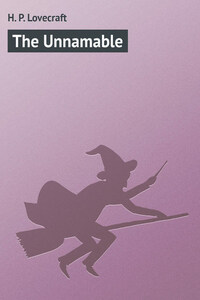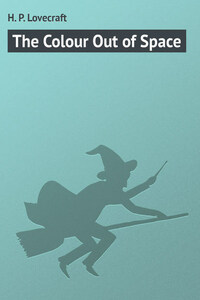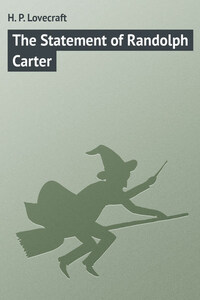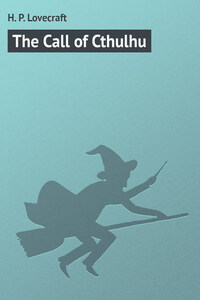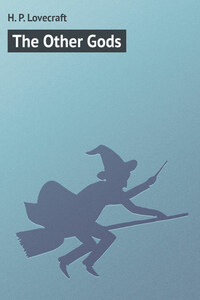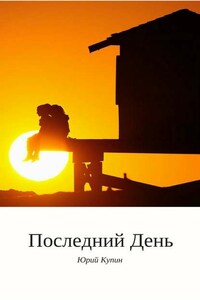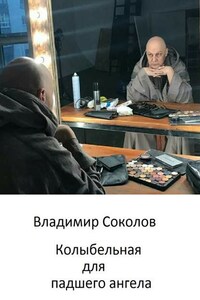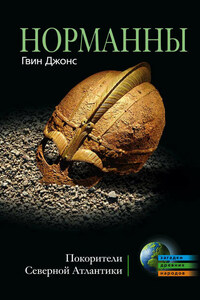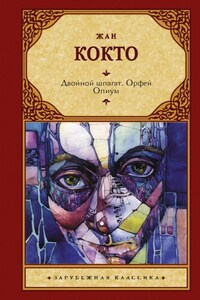We were sitting on a dilapidated seventeenth-century tomb in the late afternoon of an autumn day at the old burying-ground in Arkham, and speculating about the unnamable. Looking toward the giant willow in the centre of the cemetery, whose trunk has nearly engulfed an ancient, illegible slab, I had made a fantastic remark about the spectral and unmentionable nourishment which the colossal roots must be sucking in from that hoary, charnel earth; when my friend chided me for such nonsense and told me that since no interments had occurred there for over a century, nothing could possibly exist to nourish the tree in other than an ordinary manner. Besides, he added, my constant talk about “unnamable” and “unmentionable” things was a very puerile device, quite in keeping with my lowly standing as an author. I was too fond of ending my stories with sights or sounds which paralysed my heroes’ faculties and left them without courage, words, or associations to tell what they had experienced. We know things, he said, only through our five senses or our religious intuitions; wherefore it is quite impossible to refer to any object or spectacle which cannot be clearly depicted by the solid definitions of fact or the correct doctrines of theology – preferably those of the Congregationalists, with whatever modifications tradition and Sir Arthur Conan Doyle may supply.
With this friend, Joel Manton, I had often languidly disputed. He was principal of the East High School, born and bred in Boston and sharing New England’s self-satisfied deafness to the delicate overtones of life. It was his view that only our normal, objective experiences possess any aesthetic significance, and that it is the province of the artist not so much to rouse strong emotion by action, ecstasy, and astonishment, as to maintain a placid interest and appreciation by accurate, detailed transcripts of everyday affairs. Especially did he object to my preoccupation with the mystical and the unexplained; for although believing in the supernatural much more fully than I, he would not admit that it is sufficiently commonplace for literary treatment. That a mind can find its greatest pleasure in escapes from the daily treadmill, and in original and dramatic recombinations of images usually thrown by habit and fatigue into the hackneyed patterns of actual existence, was something virtually incredible to his clear, practical, and logical intellect. With him all things and feelings had fixed dimensions, properties, causes, and effects; and although he vaguely knew that the mind sometimes holds visions and sensations of far less geometrical, classifiable, and workable nature, he believed himself justified in drawing an arbitrary line and ruling out of court all that cannot be experienced and understood by the average citizen. Besides, he was almost sure that nothing can be really “unnamable.” It didn’t sound sensible to him.
Though I well realized the futility of imaginative and metaphysical arguments against the complacency of an orthodox sun-dweller, something in the scene of this afternoon colloquy moved me to more than usual contentiousness. The crumbling slate slabs, the patriarchal trees, and the centuried gambrel roofs of the witch-haunted old town that stretched around, all combined to rouse my spirit in defense of my work; and I was soon carrying my thrusts into the enemy’s own country. It was not, indeed, difficult to begin a counter-attack, for I knew that Joel Manton actually half clung to many old-wives’ superstitions which sophisticated people had long outgrown; beliefs in the appearance of dying persons at distant places, and in the impressions left by old faces on the windows through which they had gazed all their lives. To credit these whisperings of rural grandmothers, I now insisted, argued a faith in the existence of spectral substances on the earth apart from and subsequent to their material counterparts. It argued a capability of believing in phenomena beyond all normal notions; for if a dead man can transmit his visible or tangible image half across the world, or down the stretch of the centuries, how can it be absurd to suppose that deserted houses are full of queer sentient things, or that old graveyards teem with the terrible, unbodied intelligence of generations? And since spirit, in order to cause all the manifestations attributed to it, cannot be limited by any of the laws of matter, why is it extravagant to imagine psychically living dead things in shapes – or absences of shapes – which must for human spectators be utterly and appallingly “unnamable”? “Common sense” in reflecting on these subjects, I assured my friend with some warmth, is merely a stupid absence of imagination and mental flexibility.
Конец ознакомительного фрагмента. Полный текст доступен на www.litres.ru
